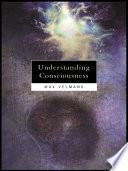Source: Is human information processing conscious?, 1991, p. 657; Cited in: Giorgio Marchetti, "A presentation of attentional semantics." Cognitive processing 7.3 (2006): 163-194.
Works

Understanding Consciousness
Max VelmansFamous Max Velmans Quotes
Is human information processing conscious?, 1991
Partly cited in: W.S. Robinson (2006). "Epiphenomenalism." Encyclopedia of Cognitive Science.
Is human information processing conscious?, 1991
Max Velmans (1991) " Consciousness From a First-Person Perspective http://cogprints.org/594/1/199802004.html," Behavioral and Brain Sciences, 14, (4) 702-719; p. 705.
Susan Schneider and Max Velmans (2008). "Introduction". In: Max Velmans, Susan Schneider. The Blackwell Companion to Consciousness. Wiley.
Source: Is human information processing conscious?, 1991, p. 665; As cited in: Giorgio Marchetti, " Against the view that consciousness and attention are fully dissociable https://www.ncbi.nlm.nih.gov/pmc/articles/PMC3279725/." Attention and consciousness in different senses (2011): 23.
Max Velmans (Ed.) (1996). The Science of Consciousness: Psychological, Neuropsychological and Clinical Reviews. Routledge. p. 3
Max Velmans (2009) Understanding Consciousness, Edition 2. Routledge/Psychology Press, p. 298